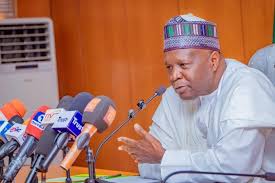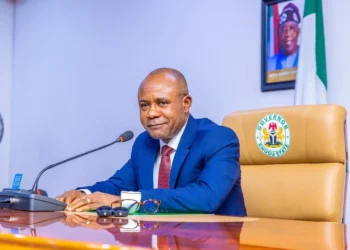Only Rivers and Lagos States, among the 36 States of the federation, were able to generate enough internal revenue to meet their operating expenses without external assistance, BudgIT’s 2024 State of States Report says.
Themed: ‘Moving Healthcare Delivery from Suboptimal to Optimal,’ the report shows that Rivers and Lagos topped BudgIT’s fiscal responsibility chart, with Rivers achieving an Internally Generated Revenue (IGR) to operating expense ratio of 121.26 per cent, narrowly edging out Lagos at 118.39 per cent.
The report reveals that, most of the states in the country relied on federal allocations for over half of their total revenue. Despite a 31.2 per cent year-on-year revenue increase across the states, only a handful managed to fund a significant portion of their operations independently.
Ogun, Anambra, Cross River, and Kwara covered at least 50 per cent of their operating costs from internal revenue, yet still depend on federal transfers to bridge the gap. In contrast, states such as Akwa Ibom, Imo, Taraba, Yobe, Bayelsa, and Jigawa required over five times their IGR to meet operating expenses, highlighting significant dependence on FAAC revenues and aid and grants.
In the 2023 fiscal year, the combined revenue of all 36 states in Nigeria increased significantly by 1.2 per cent from N6.6 trillion in 2022 to N8.66 trillion. This growth rate exceeded the previous year’s increase of 28.95 per cent, indicating a notable improvement in fiscal performance.
Of the total revenue generated in 2023, Lagos State contributed N1.24 trillion, representing 14.32 per cent of the cumulative revenue of the 36 States. Gross FAAC, which grew by 33.19 per cent from N4.05 trillion in 2022 to N5.4 trillion in 2023, contributed to 65 per cent of the year-on-year growth of the combined revenue of the 36 states. This increase indicates the additional revenue accrued to states, albeit moderate, due to discontinuing the petroleum subsidy.
Also, 32 states relied on FAAC receipts for at least 55 per cent of their total revenue, while 14 states relied on FAAC receipts for at least 70 per cent of their total revenue. Furthermore, transfers to states from the federation account comprised at least 62 per cent of the recurrent revenue of 34 states, except Lagos and Ogun, while 21 states relied on federal transfers for at least 80 per cent of their recurrent revenue.
BudgIT’s head of research and policy advisory, Iniobong Usen, highlighted the need for states to improve internal revenue generation and limit foreign debt, particularly in light of rising external debt repayment costs.
“The fiscal viability and long-term sustainability of states heavily depend on their capacity to mobilise revenues internally by effectively leveraging their natural resource endowments, technology, public-private partnerships, human capital, and effective consequence management. This capacity is crucial for financing essential infrastructure, investing in human capital development and social protection, meeting the new minimum wage and its consequential adjustments, and repairing the fractured social contract.
“To achieve debt sustainability, states must also curb their reliance on foreign loans, especially in light of exchange rate volatility and shrinking fiscal space, to minimise exposure to unfavourable exchange rates.
“Additionally, states should establish robust frameworks for debt transparency and accountability, ensuring that borrowed funds are allocated to high-impact projects with clear economic returns,” Usen stated.




